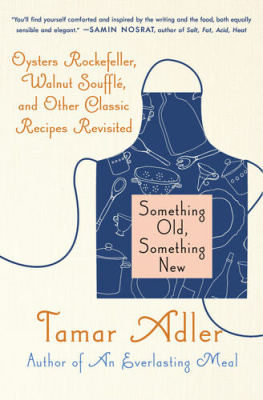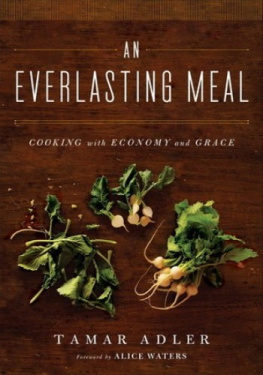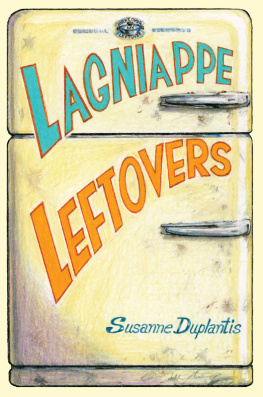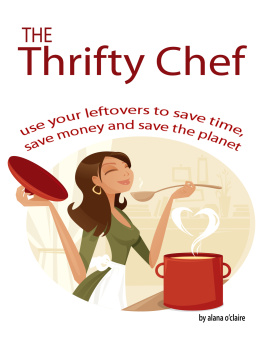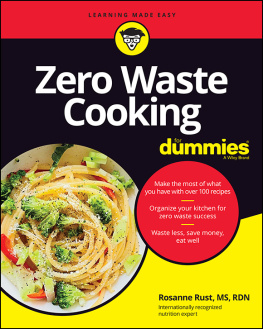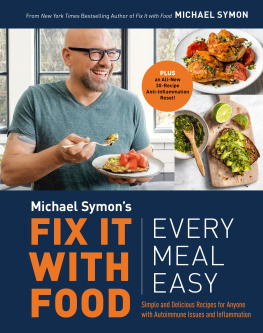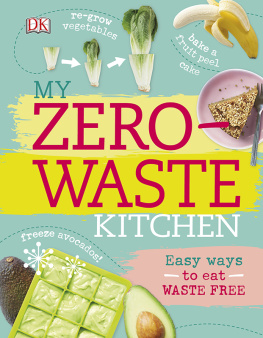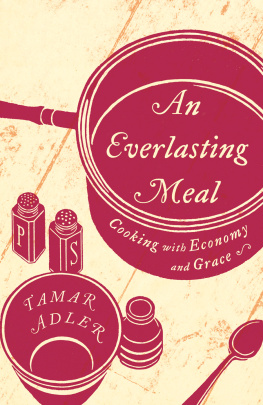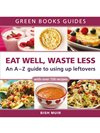PRAISE FOR TAMAR ADLERS AN EVERLASTING MEAL
Beautifully intimate, approaching cooking as a narrative that begins not with a list of ingredients or a tutorial on cutting an onion, but with a way of thinking. Tamar is one of the great writers I knowher prose is exquisitely crafted, beautiful and clear-eyed and open, in the thoughtful spirit of M. F. K. Fisher. This is a book to sink into and read deeply.
Alice Waters, from the Foreword
Lessons so right and so eloquent that I think of them as homilies.
Corby Kummer, The New York Times Book Review
Tamar Adler has written the best book on cooking with economy and grace that I have read since M. F. K. Fisher.
Michael Pollan
Reads less like a cookbook than like a recipe for a delicious life.
New York magazine
A book about how to live a good life: take the long view, give to others, learn from everything you do, and always, always, always mindfully enjoy what you are doing and what youve done. The fact youll learn to be a great cook is just a bonus.
Forbes.com
Adler proves herself an adept essayist in this discourse on instinctive home cooking. Though highly personal, its much less a food memoir than a kind of cooking tao.
The Atlanta Journal-Constitution
Simultaneously meditative and practical, about how to appreciate and use what you have and how to prepare it appropriately with a minimum of fuss, space, equipment, or waste.
The Austin Chronicle
Like having a cooking teacher whispering suggestions in your ear. Mindfulness, Im discovering through this terrific book, can be delicious.
Novella Carpenter, author of Farm City
Adlers terrific book wisely presents itself as a series of how-tos with the suggestion that its not only possible to do all these things but, in fact, a pleasure. An Everlasting Meal provides the very best kind of lesson, that there is real joy to be had in eating, and eating well.
Dan Barber, chef/co-owner of Blue Hill and Blue Hill at Stone Barns
PRAISE FOR TAMAR ADLERS SOMETHING OLD, SOMETHING NEW
Tamar Adler is a curious magpie, skillfully collecting culinary ephemera from across the ages and weaving them into an unimaginably beautiful nest. Step inside. Youll find yourself comforted and inspired by the writing and the food, both equally sensible and elegant.
Samin Nosrat, author of Salt, Fat, Acid, Heat
A lovely and literary cookbook handsome and witty and personal, full of glimpses into Adlers life.
Vogue.com
Adler is a peaceable cook, and a pragmatic one. Her economizing ethos shines in her new book.
The Washington Post
A personal, nostalgic journey inspiring the rediscovery of classics as much about the writing as it is about the cooking.
Jenny Rosenstrach, The New York Times Book Review
Adler has a curious intelligence and technical command to back up a thoughtful approach. Any cook looking to exercise and enhance creativity will find in Adler a worthy muse.
Booklist
Adlers beautiful, reflective prose provides history and insight into each dish. Adler shows how nostalgic, old school dishes can taste current when remade with a modern sensibility.
Publishers Weekly
Tamar Adler is more than a wonderful food writershe is a wonderful writer. She delves into these past and forgotten recipes with the spirit of an adventurer and a sleuth, and while writing about food, she is always secretly writing about something elsea love of life, eternal values, industry, thrift, friendship, the unknown. Her bookswritten with a charmingly loose confidence and carefeel timeless.
Sheila Heti, author of Pure Colour
I treasure Something Old, Something New for the writing, which is as suave and fun to read as M. F. K. Fisher. Adler is the best kind of kitchen companion, someone whose warm and witty voice I want to carry with me as I cook.
Bee Wilson, author of Consider the Fork
Thank you for downloading this Simon & Schuster ebook.
Get a FREE ebook when you join our mailing list. Plus, get updates on new releases, deals, recommended reads, and more from Simon & Schuster. Click below to sign up and see terms and conditions.
CLICK HERE TO SIGN UP
Already a subscriber? Provide your email again so we can register this ebook and send you more of what you like to read. You will continue to receive exclusive offers in your inbox.
To Louis and Peter, and for savers of short string
A man was cleaning the attic of an old home in New England and he found a box which was full of tiny pieces of string. On the lid of the box there was an inscription in an old hand: String too short to be saved.
Donald Hall, String Too Short to Be Saved
INTRODUCTION
T his book contains most of what I know about cooking, spread among recipes for making much with odds and ends.
I feel about leftovers as I do about empty restaurants and unkempt gardens. I love them because they are unloved. I know this isnt a universal sentiment. But I imagine that other people also look at the dried out slice of bread whose companion tasted so good this morning, or at the end of a pot of soup or rice and wish they could love them, and believe that they could, if any could taste as good again. That is what I fantasized about while I wrote this book.
This is a leftovers encyclopedia, organized by leftover ingredient. A friend suggested I call it How to Cook Everything Again, because that is the information it contains. The vegetable chapter has hundreds of ideas for leftover vegetables and their stems and leaves. The fruit chapter has recipes for overripe and underripe fruit and its peels and pits. The beans and rice chapter is what to make of pots of beans and rice. And so on. My definitions are broad, including foods that are not strictly leftover. The writer Richard Olney, half of whose recipes in Simple French Food rely on stale bread, wrote that the wild things of nature were the economic ally of leftovers. This is sound. Like leftovers, foraged foods are free. Ive included edible weeds and mushrooms where I knew what to do with them.
Ive left entries in the terms that come first to my mind. A recipe using leftover mashed potatoes will be found under Mashed potatoes rather than Potatoes, mashed. Leftover candied yams are listed as such. In the case of eggswhere I somewhat religiously consider the egg itself before how it assembles itself in the pot or pan, I list Eggs, poached and Eggs, scrambled. When an ingredient or dish entered my life in a language other than English, I used its native language.
There is a paradox in writing recipes for this style of cooking. To provide directions for turning leftover mashed potatoes into crisp, fried cakes, I had to posit an amount of leftover mashed potatoes. How else to succinctly say how much flour to add and how much fat to fry them in? But the amount of leftover mashed potatoes you need is the amount you have. This is true in general and certainly for every recipe in this book. It is one of the inalienable rewards of treating old and leftover food as food, and you must claim it. Ive included a logical if arbitrary amount of mashed potatoes (and so on) throughout. You can read and note the ratios in the recipes and about how much flour you need for what is in your bowl, and how much fat, and how many cakes it will make, and make decisions accordingly.
All cooking really requires is perception, practice, and patience. (This alliteration is galling but so were the synonyms.) Most other inputs are distractions. The chef Edna Lewis used to say that she listened to know when a cake was done. Ive never heard a cake finishing, but I listen for eggs clattering around in a pot, and water burning off sauteing greens when they go from a light hiccup to a hard fry. These sounds are as good as a timer going off, and they are better for learning. This is even truer of smell. We have intricate noses, evolved over millions of years to ensure our survival. We smell some things better than bloodhounds do. We receive little reassurance that we bloodhounds can trust our senses to say food has gone bad. This is in part due to the preeminence in what exists of a collective American consciousness of expiration dateswhich are not in fact expiration dates. (Nor are sell-by dates or best-by dates.) Most of the time, we

